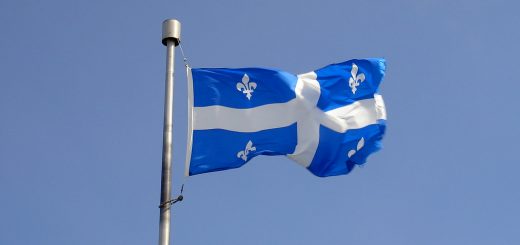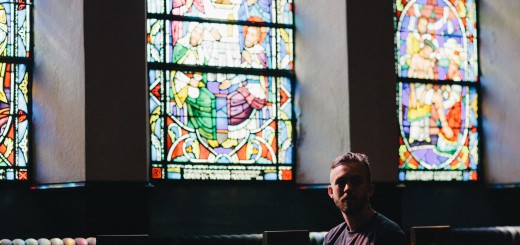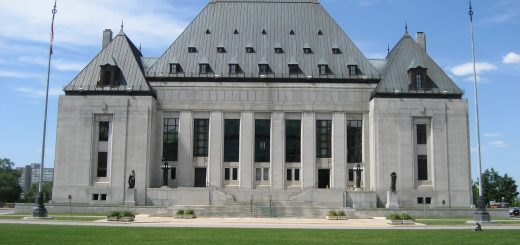Face-Coverings and the Canadian Citizenship Oath: The Federal Court of Appeal Decides Ishaq v Canada
Few legal disputes have the potential of being as deeply divisive and politically polarizing as Canada v Ishaq, 2015 FCA 194 [Ishaq Appeal]. In addition to its potential cultural, social, political, and religious implications, this case underscores the tension between fair, democratically enacted legislation, and fundamental freedoms protected in the Charter. Although the Federal Court of Appeal (“FCA”) ruled in favour of the Applicant, Ms. Zunera Ishaq, it is hard to see this dispute ending here, and indeed, we can expect this matter to be settled on appeal to Canada’s highest court.
Factual Background
Ms. Zunera Ishaq, a Pakistani national, is a devout Sunni Muslim, who says that “her religious beliefs obligate her to wear the niqab, a veil covering most of her face” (Ishaq v Canada (Citizenship and Immigration), 2015 FC 156, para 1 [Ishaq]). Her application against the respondent, Citizenship and Immigration Canada (“CIC”), relates to the “manner by which she is compelled to take the oath of citizenship” (Ishaq, para 2), pursuant to paragraph 3(1)(c) of the Citizenship Act, RSC 1985, c C-29.
Sections 13.2 and 6.5 of CIC’s policy manual, CP 15: Guide to Citizenship Ceremonies (as amended to 21 December 2011) (the “policy”), require all candidates to “remove their face covering during the taking of the oath” (Ishaq, para 3). If they do not, they will not receive their Canadian citizenship on that day, and must re-attend a different ceremony, before being granted full citizenship. If they again fail to comply, “their application for citizenship will be ended” (Ishaq, para 5).
Ms. Ishaq objects to this requirement, on the basis that it interferes with her freedom of religion. Despite being willing to remove her veil in a private setting for the purposes of identification and security, Ms. Ishaq stated:
My religious beliefs would compel me to refuse to take off my veil in the context of a citizenship oath ceremony, and I firmly believe that based on existing policies, I would therefore be denied Canadian citizenship. I feel that the governmental policy regarding veils at citizenship oath ceremonies is a personal attack on me, my identity as a Muslim woman and my religious beliefs (Ishaq, para 6).
The Federal Court’s Decision
A number of issues were put before Justice Boswell at the hearing of this matter. Although Ms. Ishaq’s challenge against the policy rested primarily on sections 2(a) and 15(1) of the Charter, Justice Boswell’s reasons for allowing the judicial review rested uniquely on his finding that the policy as structured is inconsistent with its enabling legislation. (For a detailed analysis of the Federal Court decision, see Juan De Villa’s commentary here.)
Although the Government argued that the policy constituted a “non-binding guideline” (Ishaq, para 32), Justice Boswell disagreed, instead finding that the use of the terms “must” and “shall” rendered this policy “mandatory and tantamount to law” (Ishaq, para 51). As such, the policy was found to conflict with the statutory duties of the citizenship judge – to “administer the oath of citizenship with dignity and solemnity, allowing the greatest possible freedom in the religious solemnization or the solemn affirmation thereof” (Ishaq, para 53; also see section 17(1)(b) of the Citizenship Regulations, SOR/93-246 [Regulations]).
As Justice Boswell ultimately noted:
Citizenship judges cannot exercise that function to determine what degree of freedom is possible if they instead obey the Policy’s directive to ensure that candidates for citizenship have been seen, face uncovered, taking the oath (Ishaq, para 54).
Since subordinate legislation cannot conflict with its enabling statute, it was ultimately held that “the Policy is inconsistent with the duty given to citizenship judges by the Regulations, and is therefore invalid” (Ishaq, para 57). With this decided, Justice Boswell found it unnecessary to consider the Charter arguments raised by Ms. Ishaq.
The Federal Court of Appeal’s Decision
This matter was heard before Justices Trudel, Webb and Gleason on September 15, 2015. In an unusual move, judgment was rendered from the bench that same day, so as to permit the applicant to participate in this year’s federal election (Ishaq Appeal, para 5).
In its brief, six-paragraph judgment, the unanimous bench upheld Justice Boswell’s ultimate disposition. However, the appeal to the FCA was dismissed simply “because paragraph 27(1)(h) of the Citizenship Act delegates authority to make regulations regarding the taking of the oath of citizenship to the Governor in Council, and that this policy change was not adopted by the Governor in Council” (Ishaq Appeal, para 3).
With this in mind, however, Justice Gleason specifically stated:
While we do not necessarily agree with all the reasons given by the Federal Court, we see no basis to interfere with the Federal Court’s finding as to the mandatory nature of the impugned change in policy as this finding is overwhelmingly supported by the evidence. It follows that this appeal must be dismissed (Ishaq Appeal, para 4).
The FCA also refused to open the Charter issue, finding it “unnecessary for the disposition of this case” (Ishaq Appeal, para 5).
What to Expect Going Forward
This decision will be appealed before Canada’s highest court
This decision touches a deeply political issue, which has elicited a variety of different responses and opinions from a number of government officials, political commentators, and activists, on both domestic and international levels. Indeed, citizenship has been an increasingly important issue to the Federal Government, with former Minister of Citizenship and Immigration Jason Kenney stating in 2011:
[The citizenship oath] is an act of public witness, you are standing up in front of your fellow citizens making a solemn commitment to be loyal to the country, and I just think it’s not possible to do that with your face covered and it also, I think, just undermines the whole approach that we are trying to do through citizenship, which is to make people fully members of our community. I do not know how you can do that from behind a kind of a mask (Ishaq, para 49).
The political emphasis placed on citizenship by the Federal Government is further exemplified by the passing of the Strengthening Canadian Citizenship Act, SC 2014, c 22, just last year. Citizenship and immigration will surely be a live issue in this year’s federal election – particularly with the Syrian refugee crisis continuing to challenge Canadian policy-makers. The Conservative Government is also promising to statutorily re-introduce the ban on face coverings during citizenship ceremonies within 100 days of re-election.
It is in this political context that we can expect the FCA’s decision to be appealed by the Government before the Supreme Court of Canada (“SCC”). TheCourt.ca will keep you posted on all the happenings on this front.
The Government will seek a stay of the FCA’s decision pending the SCC appeal
The Globe and Mail reports that, the Federal Government, in addition to announcing its intention to appeal the decision, also intends to seek a stay on the ruling, pending the appeal. If successful, this would see the ruling suspended until the SCC ultimately decides this issue.
To be successful on this procedural point, the Government must meet the three-part cumulative test as set out in RJR MacDonald Inc v Canada (Attorney General), [1994] 1 SCR 311:
- Is there a serious issue to be tried?
- Will irreparable harm result if the stay is not granted?
- A determination of which of the two parties will suffer the greater harm from the granting or refusal of an interlocutory injunction, pending a decision on the merits.
The threshold on the first branch of the test is relatively low, so we can expect the Government and Ms. Ishaq to battle it out on the second and third branches, should the litigation get that far.
Leave to intervene will be sought from a number of groups
In 2015 FCA 151, Justice Stratas refused to grant leave to intervene to a number of different bodies in the Government’s appeal before the FCA, including the Canadian Civil Liberties Association, the National Council of Canadian Muslims, the South Asian Legal Clinic of Ontario/South Asian Bar Association of Toronto, the Ontario Human Rights Commission, the Barbra Schlifer Commemorative Clinic, and the Women’s Legal Education and Action Fund Inc.
Should leave to appeal be granted by the SCC, it is highly likely that these groups, among others, will seek to have their positions heard before Canada’s highest court. Whether or not they will be successful remains to be seen.
Once again, TheCourt.ca’s editorial staff will keep a close eye on the progression of this dispute, and will keep you posted as to its happenings going forward.








Join the conversation